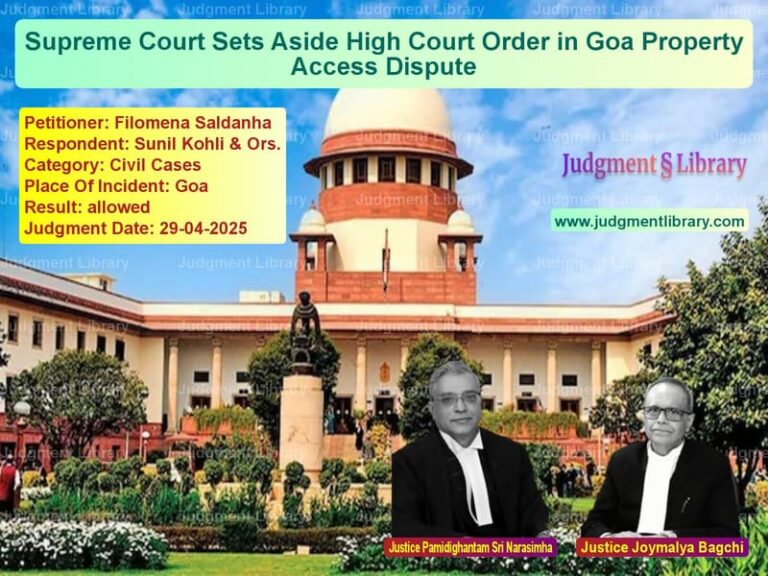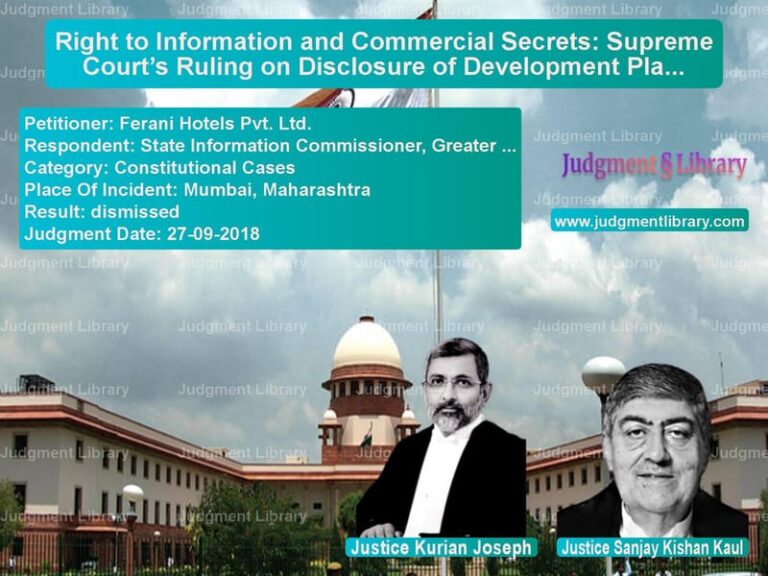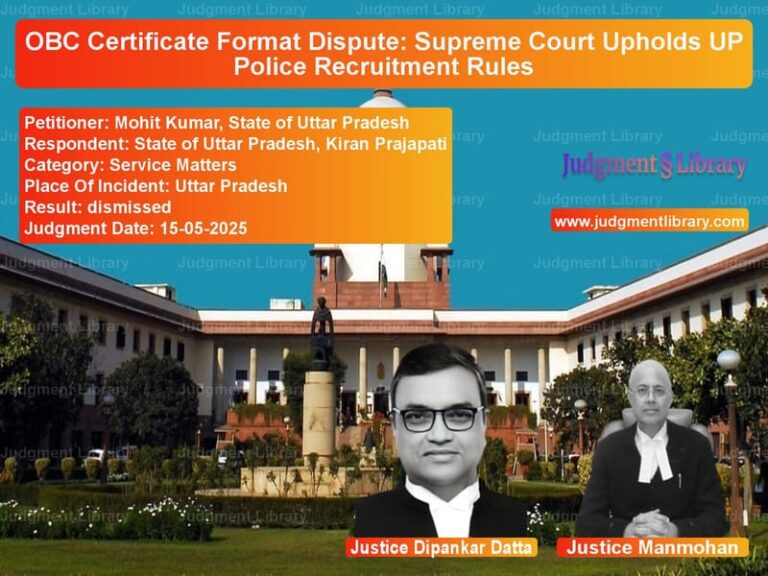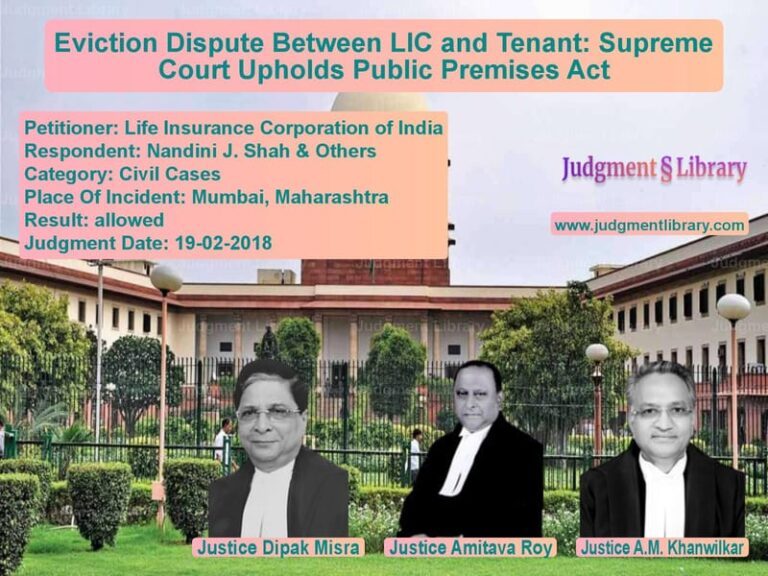Supreme Court Denies Bail in NDPS Case Due to Misrepresentation of Facts
The Supreme Court of India, in its judgment dated January 19, 2024, addressed a serious issue regarding misrepresentation and suppression of facts in bail applications. The case revolved around Kusha Duruka, who was accused under the Narcotic Drugs and Psychotropic Substances (NDPS) Act, 1985, and had sought bail multiple times by concealing material facts from the courts. The Court dismissed the appeal as infructuous and imposed costs on the petitioner.
Background of the Case
The case originated from an FIR registered on February 3, 2022, in Odisha, where the appellant, Kusha Duruka, was arrested along with a co-accused for possession of 23.8 kg of ganja. The accused was charged under Section 20(b)(ii)(C) of the NDPS Act. After the rejection of his first bail application by the Sessions Court on February 4, 2022, the appellant moved the High Court but was again denied bail on March 6, 2023.
However, while the first bail application was pending before the Supreme Court in an SLP, the appellant filed a second bail application before the High Court without disclosing the ongoing proceedings. This resulted in the High Court granting bail on October 11, 2023, which later came to the attention of the Supreme Court.
Key Legal Issues
- Whether the appellant had misrepresented facts in his bail applications.
- Whether suppression of material facts amounts to an abuse of the judicial process.
- Whether bail granted by the High Court should be revoked due to misrepresentation.
Petitioner’s Arguments
The appellant contended that he had been in custody since February 3, 2022, and that his co-accused had already been granted bail on January 17, 2023. He argued that he was entitled to bail on grounds of parity and fairness.
Additionally, the appellant’s counsel claimed that the omission to mention the pending SLP before the Supreme Court was unintentional and did not amount to deliberate misrepresentation.
Respondent’s Arguments
The State of Odisha argued that the appellant had actively concealed material facts in his bail application. The State submitted that the appellant:
- Failed to disclose that his first bail application had been dismissed by the High Court.
- Did not inform the High Court that a Special Leave Petition (SLP) was pending before the Supreme Court on the same issue.
- Filed a second bail application before the High Court despite being aware of the Supreme Court proceedings.
The respondent further contended that such practices undermine the administration of justice and necessitate strict judicial scrutiny.
Supreme Court’s Observations
The Supreme Court examined the issue of misrepresentation and fraud in judicial proceedings, citing several landmark judgments:
In Chandra Shashi v. Anil Kumar Verma, (1995) 1 SCC 421, the Court held:
“Anyone who takes recourse to fraud, deflects the course of judicial proceedings; or if anything is done with oblique motive, the same interferes with the administration of justice. Such persons are required to be properly dealt with, not only to punish them for the wrong done, but also to deter others from indulging in similar acts which shake the faith of people in the system of administration of justice.”
Similarly, in Dalip Singh v. State of Uttar Pradesh, (2010) 2 SCC 114, the Court lamented the decline in values among litigants, stating:
“In the last 40 years, a new creed of litigants has cropped up. Those who belong to this creed do not have any respect for truth. They shamelessly resort to falsehood and unethical means for achieving their goals.”
Applying these principles, the Supreme Court concluded that the appellant had deliberately misled the High Court to secure bail and that such conduct was unacceptable.
Final Judgment
Although the Court chose not to revoke the bail granted by the High Court, it imposed a penalty of ₹10,000 on the appellant, payable to the Mediation and Conciliation Centre of the Orissa High Court. The Court directed that all High Courts adopt a uniform system to prevent such manipulation in bail applications.
Key Takeaways from the Judgment
- Suppression of material facts in judicial proceedings constitutes an abuse of process.
- Litigants must disclose all prior bail applications and pending appeals in subsequent filings.
- Courts must implement procedural safeguards to prevent forum shopping.
This judgment reinforces the Supreme Court’s commitment to upholding the integrity of the judicial process and serves as a warning against the misuse of legal remedies through misrepresentation.
Petitioner Name: Kusha Duruka.Respondent Name: The State of Odisha.Judgment By: Justice Vikram Nath, Justice Rajesh Bindal.Place Of Incident: Odisha.Judgment Date: 19-01-2024.
Don’t miss out on the full details! Download the complete judgment in PDF format below and gain valuable insights instantly!
Download Judgment: kusha-duruka-vs-the-state-of-odisha-supreme-court-of-india-judgment-dated-19-01-2024.pdf
Directly Download Judgment: Directly download this Judgment
See all petitions in Bail and Anticipatory Bail
See all petitions in Fraud and Forgery
See all petitions in Judgment by Vikram Nath
See all petitions in Judgment by Rajesh Bindal
See all petitions in dismissed
See all petitions in supreme court of India judgments January 2024
See all petitions in 2024 judgments
See all posts in Criminal Cases Category
See all allowed petitions in Criminal Cases Category
See all Dismissed petitions in Criminal Cases Category
See all partially allowed petitions in Criminal Cases Category







